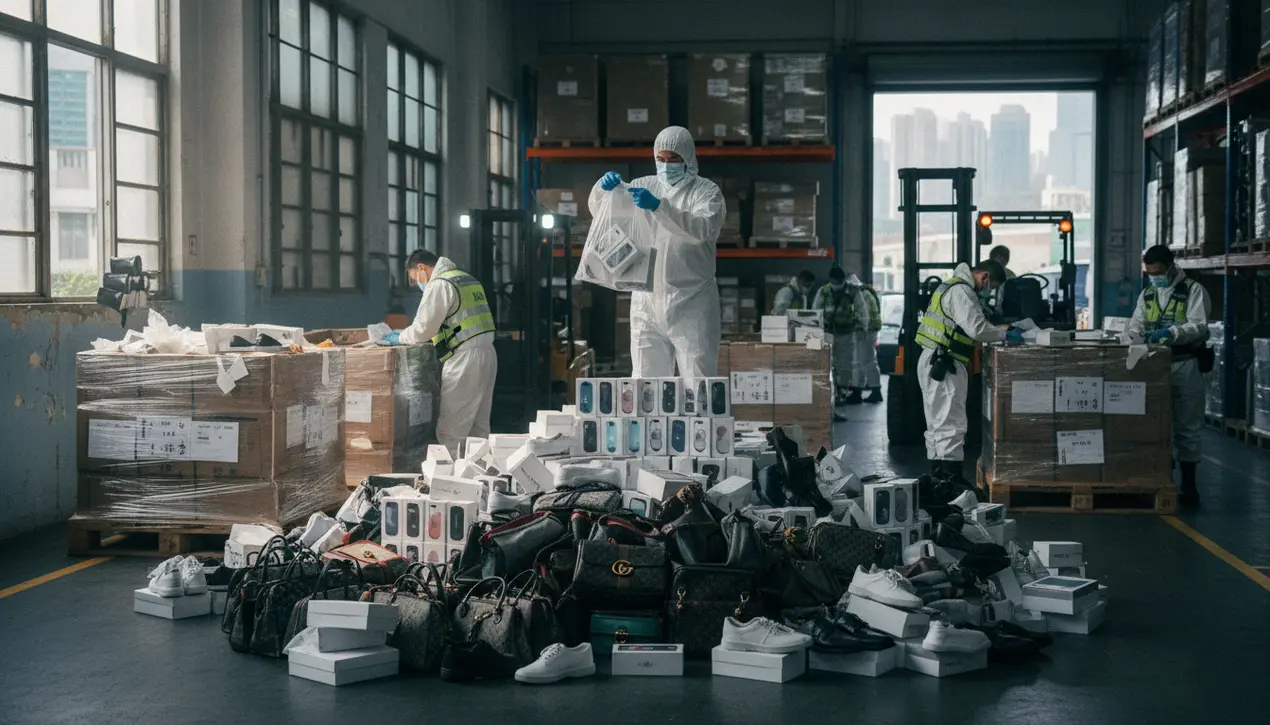
Otherlaw & courtsCourt Decisions
Hong Kong Customs Seizes HK$65 Million in Fake Goods.
OL
Oliver Scott
1 day ago7 min read9 comments
In a meticulously executed month-long operation spanning from October 20 to November 14, Hong Kong customs authorities have delivered a significant blow to the global counterfeit trade, intercepting a staggering HK$65 million (approximately US$8. 3 million) in fake luxury goods and electronics.The seizure of 120,000 suspected counterfeit items was strategically timed to coincide with a major online shopping festival in mainland China, a period notorious for a surge in cross-border transshipments designed to exploit the frenzy of consumer demand. The confiscated haul reads like a luxury bazaar's inventory, comprising fake Gucci handbags, Hermes shoes, and, most tellingly, the latest models of the iPhone—a high-value, high-demand item that underscores the increasing sophistication and audacity of these illicit supply chains.This was not a minor sting; the Customs and Excise Department's special enforcement operation culminated in 29 solved cases, revealing a complex network exploiting Hong Kong's pivotal role in global logistics. The timing is critical.Major shopping festivals in China create a perfect storm: immense consumer pressure for discounts and immediate availability, which counterfeiters are all too eager to fulfill. This operation exposes a critical vulnerability point in the international trade ecosystem, where legitimate shipping routes are weaponized for illicit gain.The presence of counterfeit iPhones is particularly alarming for brand security experts, indicating that criminal enterprises are not just targeting fashion but are capable of and willing to infiltrate the tightly controlled consumer electronics market, posing significant risks to consumer safety, data security, and corporate intellectual property. The financial loss to brands like Apple, Gucci, and Hermes is immense, but the reputational damage and potential safety hazards from unregulated electronics are incalculable.From a risk analysis perspective, this seizure is a clear indicator of a shifting threat landscape. The traditional model of back-alley fakes is being supplanted by a highly organized, logistics-savvy parallel economy that mirrors the efficiency of legitimate e-commerce.The operation's success highlights the increasing capability and coordination of Hong Kong's enforcement agencies, but it also raises urgent questions about the scalability of such defenses. As online shopping festivals grow in scale and frequency, the volume of cross-border parcels becomes a tidal wave, creating near-perfect camouflage for counterfeit operations.The next logical escalation, which authorities must now scenario-plan for, involves the use of more sophisticated smuggling techniques, including the exploitation of small-packet shipping and the dark web for distribution. The long-term consequences extend beyond brand protection; this is a direct challenge to Hong Kong's reputation as a secure and reliable trading hub and represents a significant drain on tax revenues. While this bust is a tactical victory, it is merely one battle in a protracted, asymmetric war against a fluid and adaptive global counterfeit network that has proven remarkably resilient to enforcement pressures.
#Hong Kong
#counterfeit goods
#customs seizure
#Gucci
#Hermes
#iPhone
#cross-border crime
#online shopping festival
#editorial picks news
Stay Informed. Act Smarter.
Get weekly highlights, major headlines, and expert insights — then put your knowledge to work in our live prediction markets.
Comments
Loading comments...
© 2025 Outpoll Service LTD. All rights reserved.